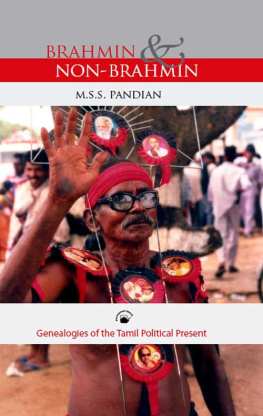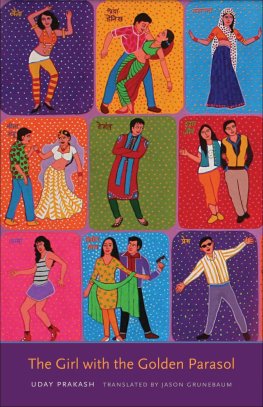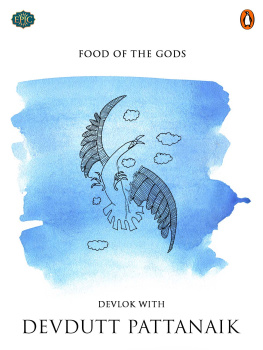M.S.S.Pandian - Brahmin and Non-Brahmin: Genealogies of the Tamil Political Present
Here you can read online M.S.S.Pandian - Brahmin and Non-Brahmin: Genealogies of the Tamil Political Present full text of the book (entire story) in english for free. Download pdf and epub, get meaning, cover and reviews about this ebook. year: 2018, publisher: Orient BlackSwan Private Ltd., genre: Religion. Description of the work, (preface) as well as reviews are available. Best literature library LitArk.com created for fans of good reading and offers a wide selection of genres:
Romance novel
Science fiction
Adventure
Detective
Science
History
Home and family
Prose
Art
Politics
Computer
Non-fiction
Religion
Business
Children
Humor
Choose a favorite category and find really read worthwhile books. Enjoy immersion in the world of imagination, feel the emotions of the characters or learn something new for yourself, make an fascinating discovery.
- Book:Brahmin and Non-Brahmin: Genealogies of the Tamil Political Present
- Author:
- Publisher:Orient BlackSwan Private Ltd.
- Genre:
- Year:2018
- Rating:3 / 5
- Favourites:Add to favourites
- Your mark:
- 60
- 1
- 2
- 3
- 4
- 5
Brahmin and Non-Brahmin: Genealogies of the Tamil Political Present: summary, description and annotation
We offer to read an annotation, description, summary or preface (depends on what the author of the book "Brahmin and Non-Brahmin: Genealogies of the Tamil Political Present" wrote himself). If you haven't found the necessary information about the book — write in the comments, we will try to find it.
M.S.S.Pandian: author's other books
Who wrote Brahmin and Non-Brahmin: Genealogies of the Tamil Political Present? Find out the surname, the name of the author of the book and a list of all author's works by series.
Brahmin and Non-Brahmin: Genealogies of the Tamil Political Present — read online for free the complete book (whole text) full work
Below is the text of the book, divided by pages. System saving the place of the last page read, allows you to conveniently read the book "Brahmin and Non-Brahmin: Genealogies of the Tamil Political Present" online for free, without having to search again every time where you left off. Put a bookmark, and you can go to the page where you finished reading at any time.
Font size:
Interval:
Bookmark:
Brahmin
and Non-Brahmin
For our entire range of books please use search strings "Orient BlackSwan", "Universities Press India" and "Permanent Black" in store.
Brahmin
and Non-Brahmin
Genealogies of the Tamil Political Present
M.S.S. PANDIAN

Published by
Permanent Black
'Himalayana', Mall Road, Ranikhet Cantt,
Ranikhet 263645
Email:
Distributed by
Orient BlackSwan Private Limited
Registered Office
3-6-752 Himayathnagar,Hyderabad
500 029 (Telangana), INDIA
e-mail:
Other Offices
Bangalore Bhopal Bhubaneshwar Chandigarh Chennai
Ernakulam Guwahati Hyderabad Jaipur Kolkata
Lucknow Mumbai New Delhi Patna
www.orientblackswan.com
2007 M.S.S. Pandian
eISBN 978-81-7824-503-4
e-edition first published in 2016
All rights reserved. No part of this publication may be reproduced,distributed, or transmitted in any form or by any means, including photocopying, recording, or other electronic or mechanical methods, without the prior written permission of the publisher, expect in the case of brief quotations embodied in critical reviews and certain other noncommercial uses permitted by copyright law. For permission requests write to the publisher.
for
Anandhi and Preethi
Contents
4 Speaking the Other/Making the Self:
The New Voice of the Non-Brahmin
ACKNOWLEDGEMENTS
Many of the ideas and arguments that find expression in the following pages have been the result of my conversations with a number of fellow academics and friends over the past several years. They include Itty Abraham, S. Anandhi, Theodore Baskaran, Chris Chekuri, Venkatesh Chakravarthy, Chris Fuller, V. Geetha, Lalitha Gopalan, J. Jeyaranjan, Shankaran Krishna, Rajan Krishnan, Nivedita Menon, Aditya Nigam, S.V. Rajadurai, Vidutahalai Rajendran, Ravindran Sriramachandran, V. Ravindiran, Padmini Swaminathan, and Ravi Vasudevan.
I have presented many of the arguments in rudimentary form at conferences and seminars over the past decade. The final shape of the arguments owes a great deal to comments from audiences at the Central University, Hyderabad; Centre of South Asian Studies, Cambridge; George Washington University, Washington, DC; India International Centre, New Delhi; International Centre for Ethnic Studies, Colombo; Queen Elizabeth House, Oxford; Columbia University, New York; University of Manitoba, Winnipeg; University of Washington, Seattle; University of Wisconsin, Madison; and Yale University, New Haven.
Part of the manuscript was written during summer 2004 while I had a research fellowship at the Centre of South Asian Studies, Cambridge. The fellowship was funded by the British India Golden Jubilee Banquet Fund. The hospitality of Raj and Jennifer made my stay at Cambridge both enjoyable and productive.
The manuscript, in full or in part, has been read and commented on by Itty Abraham, S. Anandhi, Vijay Bhaskar, John Harriss, Sarah Hodges, Rajan Krishnan, Aditya Nigam, Vincent Kumaradoss, Anand Pandian, V. Ravindiran, Rupa Viswanathan, and Akbar Zaidi. Their comments, both critical and appreciative, were of great help in reworking half-formed ideas as well as adding clarity to the arguments. The comments of Permanent Blacks anonymous reader were also of much help in recasting the manuscript.
V. Arasu provided me with critical bibliographical details. Vincent Kumaradoss and S. Anandhi were generous in sharing their collection of archival material.
Rukun Advani responded to my uncertain email about the manuscript with great enthusiasm and found the time to read it without delay.
I am truly grateful to all these individuals and institutions, without whose camaraderie and generosity this book would not have happened.
The spirit of nationality is no better than the spirit of caste.
Nationality has sentiment, pride, and fanaticism for its basis,
and is found on analysis to be no more than imaginary justification
of the will to power and possession. Nationalism is
the camouflage by which hooliganism masks its true nature...
P. Lakshmi Narasu, A Study of Caste
INTRODUCTION: THE POLITICS
OF THE EMERGENT
Names set up a field of power.Michel-Rolph Trouillot
In 1916 a group of prominent nationalists from the Madras Presidency, led by T.M. Nair and Pitti Theagaraya Chetti, broke ranks with the Indian National Congress and issued a controversial document called the Non-Brahmin Manifesto. Their Manifesto argued that Indians were not yet ready for self-rule, and if the British granted self-rule to Indians it would result in the tyranny of Brahmins over others. Though Brahmins constituted about 3 per cent of the population of the Madras Presidency, their presence in the colonial bureaucracy, in modern professions such as law, and in the leadership of the Indian National Congress was preponderant and highly visible.
Provocative in its claims, the Manifesto stirred a variety of moods in the public, within Madras and elsewhere. Dismay and anger were the dominant moods in the nationalist camp. In the understanding of nationalists, such talk of the non-Brahmin was a result of the British strategy of divide and rule, a deliberate move to fragment the putative unity of the Indian national community. The Manifesto also evoked surprise in many quarters, and those who expressed surprise directed it at the invocation of a hitherto unavailable political identitythe non-Brahmin. For, while it was true that the term non-Brahmin had been used occasionally since the late nineteenth century in the Madras Presidency, a manifestoa declarative modern form of announcing a political intentin the name of the non-Brahmin symbolized desires of a different order altogether. The intention was clearly to mobilize non-Brahmin identity as the basis of a new form of politics. After all, a manifesto represents a group to itself and invites similarly placed others to partake in its identity.
The Manifesto invoked the term non-Brahmin a full thirty times, as though repeating a self-evident truth. Yet it could not produce the truth of the non-Brahmin unambiguously. There were sceptics who doubted its validity, and they had their reasons. For instance, the Times of India commented on the Manifesto thus:
To begin with, there is no such community as the non-Brahman of which Mr [Pitti Theagaraya] Chettiar or any other individual may be regarded as an accredited representative. The very word non-Brahman shows that the only common ground among the communities which are meant to be included in it, is that they are not Brahmana. No one who knows the bitter feuds between the right hand and left hand non- Brahman castes of Madras will accept the implication underlying Mr Chettiars manifesto that the non-Brahmans are a single, homogeneous group, capable of common or united action, even as against the social and religious supremacy of the Brahminical caste.
Clearly, non-Brahmin identity was not yet in the realm of the acceptable and could be represented as an illegitimate fabrication, a political fiction. In fact the Manifesto itself carried strong traces of an awareness of the relative novelty of a non-Brahmin identity. As much as it spoke of non-Brahmins, it also referred to non-Brahmin communities in the plural, and, in one instance, it had to name some of themThe Chetty, the Komati, the Mudaliar, the Naidu, and the Nayar... In other words, non-Brahmin was not yet an accomplished identity. It was in the process of becoming.
Others, in particular Brahmin nationalists, tried to prevent the materialization of non-Brahmin identity by excluding it from public discourse. Commenting on the Manifesto, the Brahmin-owned nationalist newspaper The Hindu claimed: It can serve no good but it is bound to create bad blood between persons belonging to the same great Indian Community... It further declared: We do not wish to open our correspondence column to a discussion on this subject, as it cannot but lead to acrimonious controversy and as it would indirectly promote the invidious object of some of those who are engineering the movement. The Non-Brahmin was proved right. Soon The Hindu had to open its columns to discuss and criticize claims made on the basis of non-Brahmin identity.
Font size:
Interval:
Bookmark:
Similar books «Brahmin and Non-Brahmin: Genealogies of the Tamil Political Present»
Look at similar books to Brahmin and Non-Brahmin: Genealogies of the Tamil Political Present. We have selected literature similar in name and meaning in the hope of providing readers with more options to find new, interesting, not yet read works.
Discussion, reviews of the book Brahmin and Non-Brahmin: Genealogies of the Tamil Political Present and just readers' own opinions. Leave your comments, write what you think about the work, its meaning or the main characters. Specify what exactly you liked and what you didn't like, and why you think so.





